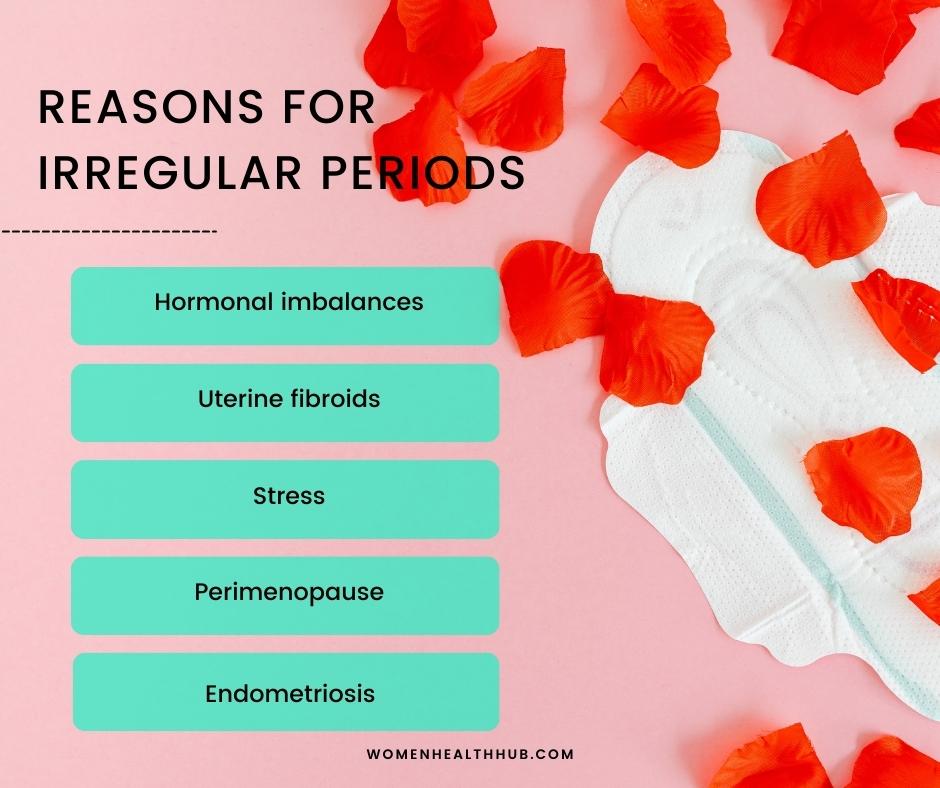Hey there! This post may contain affiliate links. As an Amazon Associate, I earn a teensy commission from qualifying purchases when you buy through these links (at no additional cost to you). For more info, please check the full disclaimer.
A new study published in The BMJ suggests that women who have irregular and long menstrual cycles during their teenage years and adulthood may have a higher risk of dying before the age of 70.
Long periods are when a period cycle is 40 days or more. Usually, women have period cycles from 26 to 31 days, with 28 days cycle being the most common. Irregular periods are when each cycle is a considerably different length, or when periods are skipped altogether in some months.
Reasons Why Irregular Periods Cause Early Death
Several factors contribute to an early death risk in women with irregular periods.
The risk is particularly greater if a woman has heart health issues. In addition, smoking was also found to be a top culprit for an increased early death risk.
The researchers looked at various factors like age, weight, lifestyle, and family medical history. They discovered that within the same age group, women who consistently had irregular menstrual cycles had higher chances of premature death compared to those with very regular cycles.
Similarly, women with longer menstrual cycles during their late teens and adulthood were more likely to die early compared to women with normal cycles in the same age groups.
The researchers believe that these associations might be related to the hormonal imbalances caused by irregular and long menstrual cycles.
They emphasize that doctors should recognize that menstrual cycle patterns should be considered essential parts of women’s overall health assessment.
What Causes Irregular or Longer Periods
Because consistent irregular periods cause early death risk, it’s important for women to know what causes menstrual irregularities.
Longer or irregular menstrual periods are normal at the time of puberty or at the time of menopause or in early pregnancy. However, as you age, the cycle should stabilize and occur after a specific number of days.
If the cycle doesn’t follow the usual gap, the menstrual irregularity may be caused by:

- Hormonal Imbalance: Hormonal imbalances, such as those involving estrogen and progesterone, can disrupt the normal menstrual cycle. These imbalances can result from conditions like polycystic ovary syndrome (PCOS), thyroid disorders, or excessive stress.
- Polycystic Ovary Syndrome (PCOS): PCOS is a common condition where the ovaries produce higher levels of androgens (male hormones) than usual. This hormonal imbalance can lead to irregular periods, longer cycles, and the formation of ovarian cysts.
- Uterine Fibroids: Uterine fibroids are noncancerous growths that develop in the uterus. They can cause heavier and longer periods, as well as menstrual irregularities.
- Endometriosis: Endometriosis occurs when the tissue lining the uterus (endometrium) grows outside the uterus, such as on the ovaries or fallopian tubes. It can cause heavy or prolonged periods, as well as irregular bleeding.
- Thyroid Disorders: An underactive or overactive thyroid gland can affect hormone levels and disrupt the menstrual cycle, leading to irregular or longer periods.
- Stress and Lifestyle Factors: Chronic stress, extreme weight loss or gain, excessive exercise, and poor nutrition can cause hormonal imbalances, resulting in an irregular menstrual cycle.
- Certain Medications or Medical Treatments: Some medications, such as certain types of contraceptives or hormonal therapies, can affect menstrual patterns. Additionally, certain medical treatments like chemotherapy or radiation therapy can cause irregular or absent periods.
- Perimenopause: As women approach menopause, their hormone levels fluctuate, which can lead to irregular periods and longer cycles.
The Bottomline
Although irregular periods cause early death risk, it’s important to remember that each person’s situation is unique and the factors increasing the chances of mortality may vary. If you are experiencing persistent or concerning changes in your menstrual cycle, we suggest you consult a healthcare provider for appropriate guidance and timely treatment.
References:
- https://www.bmj.com/content/371/bmj.m3464
- https://www.nhs.uk/conditions/irregular-periods/








